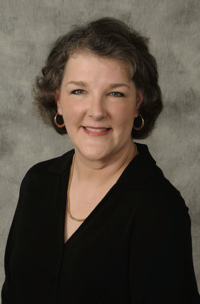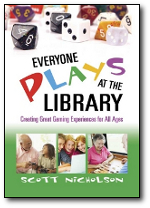Here you go after its world premiere last night:
Some Humor for the Holiday
Copia
OK, just saw this today, so I have no firsthand experience of how it actually works, but it looks cool, and is definitely getting close to reading as a social experience:
About Copia from Tim on Vimeo.
More Videos
So I gave my students a choice to either do a path finder on trends in evaluating scholarly impact, or make a video loosely answering the question “You need a masters degree for that?” Seems that a large percentage of the class get that question when they tell a spouse/parent/co-worker/friend they are going to library school. So here are some of their responses in no particular order:
Video Week
OK, something different this week. Some videos from the web. Here is the first. A great piece by Stacey Greene Wicksall.
Incredible Video on Creativity
Thanks to Alison Miner in my 511 class for the pointer to this outstanding video:
SLA Elections and Leadership
Folks it’s time to elect some board members over at SLA, and I would ask for your consideration of Jill Hurst-Wahl. Jill is a longtime colleague, a friend, and even a contributor to my upcoming Atlas of New Librarianship (shameless plug in the middle of a shameless plug – two points). Jill is one of those rare individuals who gets practice and academia, and is a tireless proponent of librarians and their vital role in business and society.
I should say, that I respect SLA’s no-campaign policy, and Jill certainly did not seek my endoresement, but this one for me is a no-brainer. She is the person I turn to for insight into special librarianship. Better yet, she is a voice I seek out on issues of librarianship regardless of library type. That is because she sees the profession not as some fractured menagerie of buildings, types, and parent organizations. Instead she sees librarianship as a positive social force.
I do a lot of talking about the obligation of leadership and the need for the profession to change. We must all step up and not only accept leadership positions in professional organization, but actively seek them out. We do this not for pride, or ego, but as stewards. Stewards of the profession, and indeed the multi-millennial traditions of librarianship. If we seek change, we must be willing to take on the tasks that come with that. We must be willing to put ourselves up for consideration.
So today I am endorsing Jill because she understands this obligation, and has served tirelessly to make a difference. Tomorrow, I want to endorse you. I have grown tired of people who sit in the back of the room and comment only to themselves. I have lost patience with those who complain loudly in the privacy of their offices, but say nothing in public. And as readers of this blog know I have zero tolerance for anonymous annoyed librarians. Leadership and service are not quiet. They do not come from identifying a need for a change – or even identifying the change needed. True leadership comes from showing up. From putting yourself before your peers, your supporters and detractors alike, and create change.
So vote for Jill, and when the next spot opens up, join her.
Here is some more information on Jill
Video:
http://www.slatv.org/media.cfm?c=758&m=3406&s=133&
SLA blog posts (candidate questions):
http://slablogger.typepad.com/sla_blog/2010/04/jill-hurstwahl-candidate-for-director-question-1-imagine-you-have-just-finished-your-term-on-the-sla.html
http://slablogger.typepad.com/sla_blog/2010/07/jill-hurstwahl-question-2.html
http://hurstassociates.blogspot.com/2010/04/sla2010-me-candidate-for-board-of.html
Syracuse iSchool mourns the passing of research professor Joanne Silverstein
7/27/2010

Joanne Silverstein, an assistant research professor at the Syracuse University School of Information Studies and director of research and development of the Information Institute of Syracuse, died July 27, 2010. She was 58 years old.
A dedicated teacher, well-known researcher, and cherished colleague, Silverstein stepped down from active duties in August 2007 to, in her words, “make time for the simpler pleasures in life and give [her] body and mind the time that it needs to heal from a chronic illness.”
“Joanne made many wonderful contributions in the time she was with us, both in her teaching and her active research with the Information Institute,” said iSchool Dean Elizabeth D. Liddy. “Joanne loved and excelled at the lofty aspects of academic research as well as prizing the very real outcomes it could accomplish in the lives of students.”
Silverstein first came to the iSchool in 1991 as a master’s student in the information management program. After earning the master’s in 1993, she then went on to earn a Ph.D. in information science and technology in 1998. She was then hired as a professor by the school and researcher by the Information Institute.
Her research focused on digital literacy, participatory librarianship, ontologies, metadata, and digital reference services. She was interested in the evolving role of the human intermediary in information seeking and retrieval. Her research was funded by such organizations as U.S. Department of Education, the Institute for Museum and Library Services, and the National Science Foundation.
Associate Professor and Director of the Information Institute R. David Lankes credits Silverstein with helping to build the research center. “Her insatiable curiosity, dedication to the school, and invaluable input at the Institute can never be replaced,” he said. “She did some amazing research in the area of digital libraries and the information needs of children. She always sought the best for the school, and she never shied away from a hard problem. She was an heir to the legacies of former iSchool Deans Robert Taylor, Jeffrey Katzer, and Ray von Dran, and she served that legacy well.”
A service will be held at 10 a.m. Friday, July 30 at the Temple Concord, 910 Madison Street, in Syracuse.
The iSchool has also established a memorial site in her honor. Everyone is invited to share a memory, photo, or comment at http://ischool.syr.edu/joanne. These remembrances will be put together and shared with Joanne’s family at a later date.
Buy This Book

I really get no kickback, I’m just a huge fan of Scott Nicholson and his work on gaming in libraries. Now he has taken his research, his practice, and all of his great work with librarians and put it into a book that I highly recommend:
Nicholson, S. (2010). Everyone plays at the library: Creating great gaming experiences for all ages. Medford, N.J: Information Today.
Aside from a really great guide to gaming in the library, it is a fantastic example of good research combined with good practice.
http://books.infotoday.com/books/Everyone-Plays-At-The-Library.shtml
Boomers and Beyond: Reconsidering the Role of Libraries
Congrats to Pauline and Diantha on a great book.
Boomers and Beyond: Reconsidering the Role of Libraries
Edited by Pauline Rothstein and Diantha Dow Schull
Publisher: ALA Editions
Price: $55.00
152 pages
8.5? x 11?, Softcover
ISBN-13: 978-0-8389-1014-6
Year Published: 2010
A roadmap to the trends and perspectives on the library’s role in meeting the needs of our aging population, this book offers
Proactive ideas that serve the increasing longevity of your patrons
Different perspectives on longevity from a variety of scholars and experts
A section on librarians’ responses to the issues
Supporting this growing population is a concern of many, and this book will help you find ways to be creative and take the initiative to build a better service model for these customers.
Table of Contents
Acknowledgments
Introduction
Part I
Older Adults: Essential Concepts and Recent Discoveries
1 New Patterns of Aging: Implications for Libraries and Cultural Institutions
Joanne Gard Marshall and Victor Marshall
2 Optimizing Health: A Life-Span Approach
Margie E. Lachman and Stefan Agrigoroaei
3 Library Leadership for Mature Adult Learners in a Changing World: The Importance of Attending to Developmental Diversity
Ellie Drago-Severson and Jessica Blum
4 The Importance of Spirituality in an Aging Society
Robert C. Atchley
5 Work and Purpose after 50
Stephen Ristau
Part II
Institutional Opportunities
6 In Search of Active Wisdom: Libraries and Consciousness-Raising for Adulthood II
Mary Catherine Bateson
7 Information-Questing Moments: Retirement-Age Americans at the Library Door
Ronald J. Manheimer and Miwako Kidahashi
8 Reconsidering Age: The Emerging Role of Cultural Institutions
Diantha Dow Schull and Selma Thomas
9 Reclaiming the “Public” Library: Engaging Immigrants, Building Democracy
Nan Kari and David Scheie
10 The Library as Place in an Aging Society
Diantha Dow Schull
Part III
Librarians’ Perspectives
11 Conversations and the True Knowledge of Generations
R. David Lankes with assistance from Pamela H. Jureller
12 Old Dogs, New Tricks: The Myths and the Realities
Stephen Abram
13 Musings on Challenges for Librarians in 2040
Pauline Rothstein
About the Authors
Pauline Rothstein has a Ph.D. from Fordham University,and an M.L.S. from Pratt. She has had a long career as a practicing librarian in special and academic libraries, specifically as Dean of the Library for Ramapo College and librarian for the Russell Sage Foundation where she created a library. In her activities in the Special Libraries Association (SLA) and International Federation of Library Associations (IFLA) as well as local library associations she is known for her innovative ideas. Currently she is Program Administrator for the LIU/NYU Dual Degree Masters program at New York University, funded by an IMLS grant she helped prepare. She has taught at Rutgers University’s library school, the School of Engineering at City College and at Baruch College. A long time adjunct faculty member for LIU’s Palmer School, the Institute she developed on lifelong learning for older adults was the catalyst for the current volume.
Diantha Dow Schull established DDSchull Associates to provide advisory services to libraries, museums and foundations on program development, organizational planning, grantmaking and fundraising. Formerly she was President of Libraries for the Future (aka Americans for Libraries Council) where she designed and directed the Lifelong Access Libraries initiative and other national library development programs. Prior to joining LFF, Schull was Executive Director of the French-American Foundation, Director of Exhibitions and Education at the New York Public Library, Director of Interpretive Programs at the Library of Congress, and Assistant Director of the Museum Aid Program of the New York State Council on the Arts. Schull is a recognized expert in fund development and a sought after speaker for conferences and professional training. She serves as a member of the Board of the Connecticut Humanities Council and is Preservation Advisor to the Town of Southbury, CT. She holds a Master’s Degree in Museum Studies from the State University of New York and is the author of numerous articles on cultural institutions including “Public Libraries: Places for Renewal” in Aging Today, a publication of the American Society on Aging (July 2003) and The Civic Library: A Model for 21st Century Participation in Advances in Librarianship (Vol 28, 2004).
